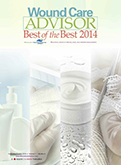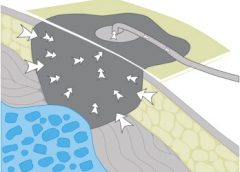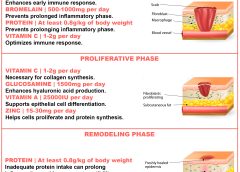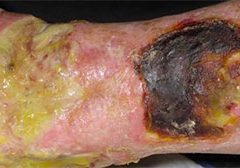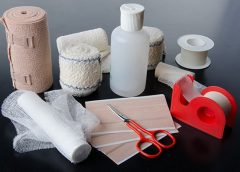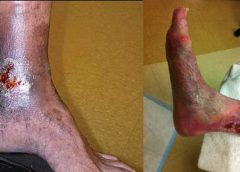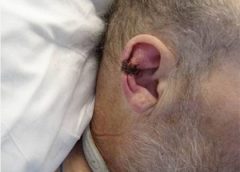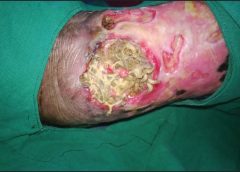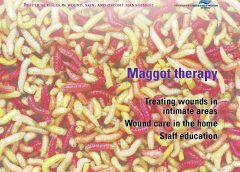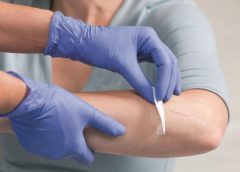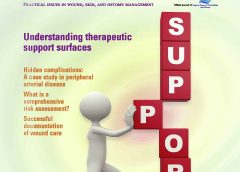http://www.latimes.com/science/sciencenow/la-sci-sn-obama-bacteria-20140918-story.html
Read MoreSearch Results for: Sto
2014 Journal: September – October Vol. 3 No. 5
Clinical Notes: Wound Photography, Lymphedema, GI Complaints
Best of the best, the sequel
By Donna Sardina, RN, MHA, WCC, CWCMS, DWC, OMS
Welcome to our second annual “Best of the Best” issue of Wound Care Advisor, the official journal of the National Alliance of Wound Care and Ostomy (NAWCO). This may be the first time you have held Wound Care Advisor in your hands because normally we come to you via the Internet. Using a digital format for this peer-reviewed journal allows us to bring you practical information that you can access anytime, anywhere and gives you the ability to access videos and other links to valuable resources for you and your patients. (more…)
Read MoreDevice–related pressure ulcers: Avoidable or not?
By: Donna Sardina, RN, MHA, WCC, CWCMS, DWC, OMS
A medical device–related pressure ulcer (MDRPU) is defined as a localized injury to the skin or underlying tissue resulting from sustained pressure caused by a medical device, such as a brace; splint; cast; respiratory mask or tubing; tracheostomy tube, collar, or strap; feeding tube; or a negative-pressure wound therapy device. The golden rule of pressure ulcer treatment is to identify the cause of pressure and remove it. Unfortunately, many of the medical devices are needed to sustain the patient’s life, so they can’t be removed. (more…)
Read MoreClinical Notes: Aspirin, Skin Infections, NPWT surgical incisions
Aspirin inhibits wound healing
A study in the Journal of Experimental Medicine describes how aspirin inhibits wound healing and paves the way for the development of new drugs to promote healing.
The authors of “12-hydroxyheptadecatrienoic (12-HHT) acid promotes epidermal wound healing by accelerating keratinocyte migration via the BLT2 receptor” report that aspirin reduced 12-HHT production, which resulted in delayed wound closure in mice. However, a synthetic leukotriene B4 receptor 2 (BLT2) agonist increased the speed of wound closure in cultured cells and in diabetic mice. (more…)
Read MoreUsing maggots in wound care: Part 1
By: Ronald A. Sherman, MD; Sharon Mendez, RN, CWS; and Catherine McMillan, BA
Maggot therapy is the controlled, therapeutic application of maggots to a wound. Simple to use, it provides rapid, precise, safe, and powerful debridement. Many wound care professionals don’t provide maggot therapy (also called wound myiasis) because they lack training. But having maggot therapy technology available for patients adds to your capabilities as a wound care provider. (more…)
Read MoreCreating effective education programs on a shoestring budget
By Jennifer Oakley, BS, RN, WCC, DWC, OMS
It’s time again for annual staff education, and you, the certified wound clinician, need to teach the staff at your organization. You dream of staff entering a state-of-the-art classroom with computers at each station, mannequins, wound anatomy models, and enough products for each student to do hands-on demonstrations. But when you open your eyes, you’re sitting in a room with ordinary tables and chairs, your laptop, a screen, a brain full of knowledge, and a very tight budget. (more…)
Read MoreHow to love and care for yourself unconditionally
By Yolanda G. Smith, MSN, RN, CCRN
Are you able to relax, have fun, and enjoy the simple pleasures of life? Or do you:
- have trouble falling or staying asleep?
- smoke, drink, or eat to reduce tension?
- have headaches, back pain, or stomach problems?
- get irritated or upset over insignificant things?
- have too much to do and too little time to do it?
Clinician Resources: Colorectal, ADA, Carbapenem-resistant
Be sure you’re familiar with these valuable resources for you and your patients.
Colorectal cancer resources
Fight Colorectal Cancer has a comprehensive resource library for patients, including:
- a link to “My Colon Cancer Coach,” which provides a personalized report to help guide patients in making treatment decisions
- archives of webinars (past topics include healthy changes that may reduce recurrence, highlights from a GI cancer symposium, and making sense of acronyms)
- a link to the National Comprehensive Cancer Network guidelines for patients
- videos on colon cancer signs and symptoms, peripheral neuropathy, and a patient answer line
- a family history worksheet
- a newly diagnosed information card and a screening information card that can be downloaded
- newsletters from the organization.

